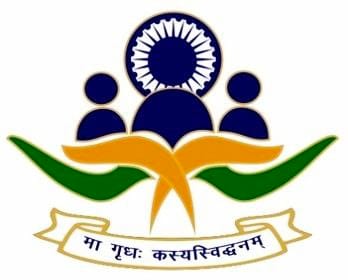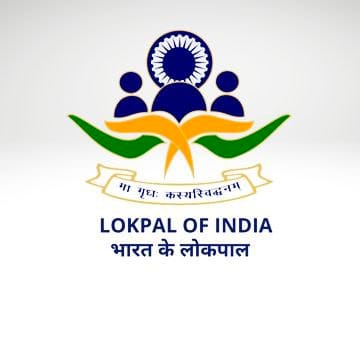Lokpal : Redressal of Public Grievances
The Lokpal is an independent statutory body established to address public grievances related to corruption involving public servants in India. It was created through the Lokpal and Lokayuktas Act, 2013, in response to growing demands for an effective mechanism to investigate and act against corruption in high offices, including those in the government. The Lokpal serves as a critical institution in India’s anti-corruption framework and aims to promote transparency, accountability, and integrity in public administration.
History and Background of the Lokpal
- Early Demand for Lokpal:
- The demand for a Lokpal in India dates back to the 1960s when the first Administrative Reforms Commission (ARC) recommended the establishment of a central anti-corruption body. Despite several bills being introduced in Parliament from the late 1960s, none were passed for decades.
- Anna Hazare’s Movement:
- The movement for the creation of the Lokpal gained national prominence in 2011 when Anna Hazare, an Indian social activist, led a mass anti-corruption movement demanding the establishment of a strong and independent Lokpal to tackle corruption in public life. This movement, popularly known as the Jan Lokpal Movement, played a significant role in building public and political momentum for the passage of the Lokpal Bill.
- Lokpal and Lokayuktas Act, 2013:
- The Lokpal and Lokayuktas Act was finally passed by Parliament in December 2013, and it received Presidential assent on January 1, 2014.
- The Act aimed to establish a Lokpal at the central level and Lokayuktas at the state level to investigate allegations of corruption against public functionaries, including the Prime Minister, ministers, Members of Parliament (MPs), and other public servants.

Composition of the Lokpal
The Lokpal is a multi-member body consisting of a Chairperson and a maximum of eight members:
- Chairperson:
- The Chairperson should be a person of eminent integrity and should have served as:
- A former Chief Justice of India, or
- A former Judge of the Supreme Court, or
- An eminent person with expertise and experience in anti-corruption, vigilance, or public administration.
- The Chairperson should be a person of eminent integrity and should have served as:
- Members:
- Of the eight members, 50% should be judicial members (either former judges of the Supreme Court or Chief Justices of High Courts).
- The other members should be persons of eminence with experience in fields such as anti-corruption policy, law, finance, administration, and public service.
- 50% of the members should be from Scheduled Castes (SCs), Scheduled Tribes (STs), Other Backward Classes (OBCs), minorities, or women.
Powers and Jurisdiction of Lokpal
- Jurisdiction:
- The Lokpal can investigate allegations of corruption against:
- Prime Minister: The Lokpal can inquire into corruption allegations against the Prime Minister with certain limitations. The inquiry cannot be related to international relations, security, or public order.
- Ministers and Members of Parliament: It can investigate corruption charges against ministers and MPs, except for speeches made or votes cast in Parliament.
- Public Servants: This includes public officials from the central government, public sector undertakings (PSUs), and organizations that receive government funding.
- NGOs and private entities: NGOs receiving foreign contributions above a certain threshold or government grants can also be investigated by the Lokpal.
- The Lokpal can investigate allegations of corruption against:
- Investigation:
- The Lokpal has the authority to initiate inquiries and investigations into corruption complaints.
- It can refer cases to the Central Bureau of Investigation (CBI) or conduct independent investigations through its own officers.
- The Lokpal can also initiate prosecution based on the findings of an investigation.
- Prosecution and Penalties:
- The Lokpal has the power to recommend disciplinary action, including suspension or dismissal, against public servants found guilty of corruption.
- It can also order the confiscation or attachment of assets acquired through corrupt means.
- Cases referred by the Lokpal to the CBI or other agencies must be dealt with expeditiously, and the results should be reported back to the Lokpal within a prescribed timeline.
- Special Courts:
- Special courts may be set up to ensure the speedy trial of cases referred by the Lokpal. The purpose is to deliver timely justice and deter public servants from engaging in corrupt practices.

Lokayuktas in States
- The Lokpal and Lokayuktas Act, 2013 also provides for the creation of Lokayuktas at the state level to investigate corruption complaints against state public servants.
- However, it is up to the state governments to establish Lokayuktas through state legislation. The structure and powers of Lokayuktas vary across states.
Process of Complaint and Investigation
- Filing of Complaints:
- Any citizen can file a complaint of corruption with the Lokpal.
- The complaint should be supported by credible evidence and should be specific to the alleged act of corruption.
- Complaints can be filed online, in writing, or through prescribed forms.
- Preliminary Inquiry:
- Upon receiving a complaint, the Lokpal conducts a preliminary inquiry to ascertain whether the complaint is valid and whether there is a need for further investigation.
- The inquiry should be completed within a set period, typically 90 days.
- Investigation and Prosecution:
- If the preliminary inquiry establishes a prima facie case, the Lokpal orders a full-fledged investigation.
- Based on the findings of the investigation, the Lokpal may recommend prosecution or disciplinary action against the public servant involved.
Limitations of Lokpal
- Jurisdictional Constraints:
- The Lokpal cannot directly investigate state-level corruption or cases outside the central government‘s purview.
- The Act limits the investigation of corruption allegations against the Prime Minister in areas like national security, foreign relations, and public order, potentially allowing misuse.
- Dependence on Other Agencies:
- The Lokpal is dependent on other agencies, such as the CBI or state agencies, for investigation and prosecution, which can delay the process. There have been concerns about the independence of agencies like the CBI.
- Delays in Appointments:
- Since its enactment, there have been delays in appointing the Lokpal Chairperson and members. As a result, the body has not functioned effectively for several years after the Act was passed.
- Lack of State Lokayuktas:
- Many states have not yet established Lokayuktas, or if established, they are often underfunded and lack sufficient powers. This weakens the anti-corruption framework at the state level.
Achievements of the Lokpal
- Anti-Corruption Efforts:
- The Lokpal, since its formation, has received and investigated multiple complaints related to high-level corruption in government departments, PSUs, and autonomous bodies.
- Public Confidence:
- The creation of the Lokpal has contributed to increased public confidence in the anti-corruption framework of the country, although its full potential is yet to be realized.
- Civil Society Engagement:
- Civil society organizations and citizens continue to use the Lokpal as a tool to fight corruption and promote ethical governance.
Challenges and Way Forward
- Ensuring Independence:
- There is a need to ensure the complete independence of the Lokpal and other investigating agencies to prevent political interference in high-profile cases.
- Enhancing State-Level Mechanisms:
- The effectiveness of the anti-corruption system depends heavily on the establishment and strengthening of Lokayuktas at the state level. Uniformity in powers and functioning across states can help in better grievance redressal.
- Increasing Awareness:
- Many citizens remain unaware of the Lokpal and its functions. Greater public awareness campaigns and training programs should be introduced to make the Lokpal system more accessible to the general public.
- Speedy Appointments:
- Delays in the appointment of Lokpal members undermine the body’s functioning. Timely appointments and regular filling of vacancies will help in ensuring the body operates effectively.
- Improving Accountability:
- To further strengthen accountability, there should be regular audits and evaluations of the performance of the Lokpal and Lokayuktas. This will ensure that they remain transparent and responsive to citizens’ grievances.
Conclusion
The Lokpal represents a critical step in India’s fight against corruption and the promotion of good governance. While it has made strides in addressing public grievances related to corruption, challenges such as delays, jurisdictional issues, and public awareness remain. The success of the Lokpal will depend on political will, institutional support, and active citizen participation. As a symbol of the public’s right to accountability, the Lokpal holds immense potential to transform governance if fully implemented and supported by all stakeholders.

